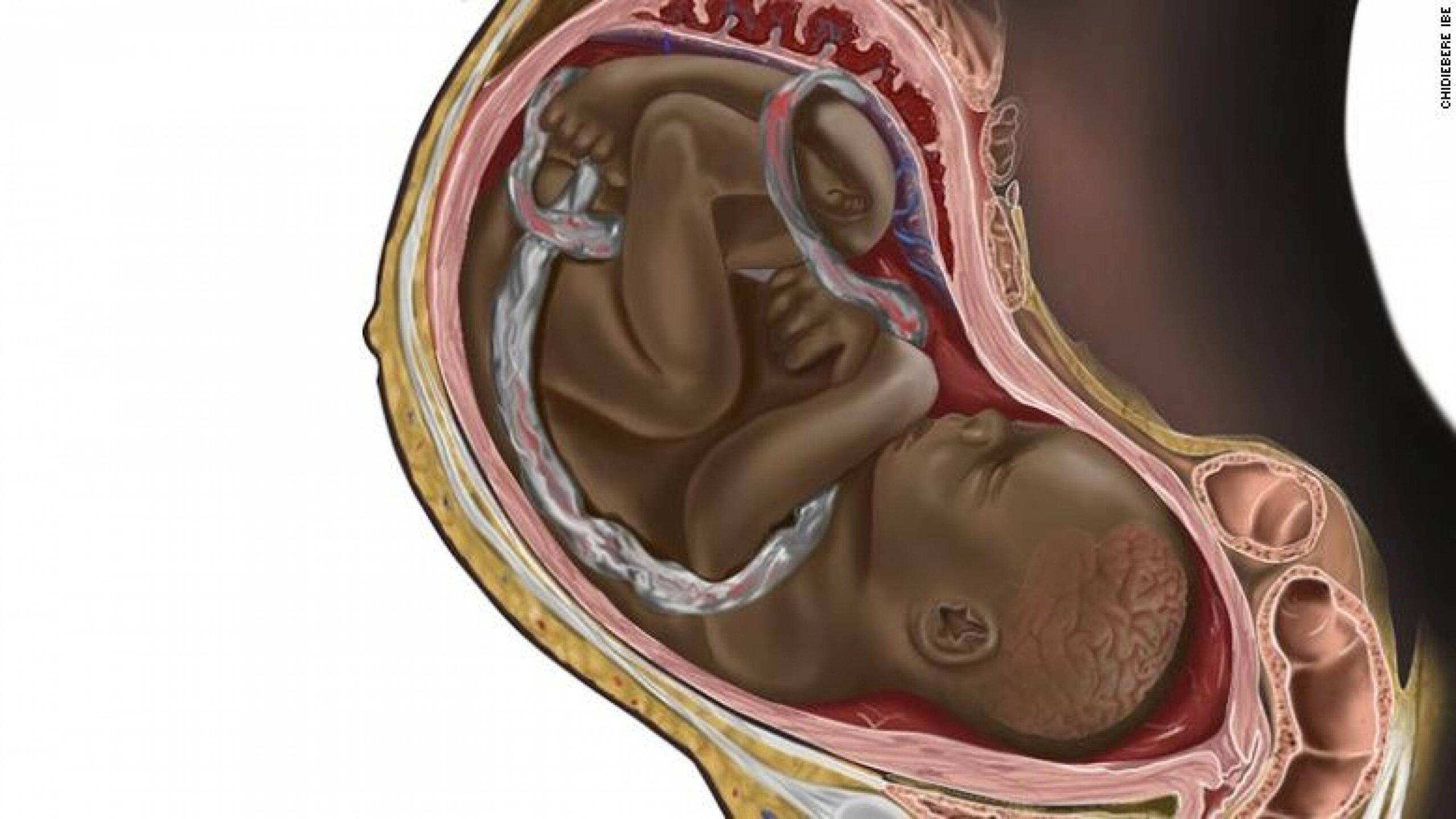THE MEDICAL illustration of the black pregnant woman, vividly showing a black baby in what appears to be the third trimester (advanced) of pregnancy, filled those of us who have seen it with wonderment.
The fact that the image, created by Nigerian medical student and illustrator Chidiebere Ibe, caused such a reaction because it had never been seen before, is symptomatic of the issue facing western provision of healthcare for black people.
Black representation and inclusion in healthcare or the lack thereof, can literally mean the difference between living and dying.

Prior to this particular illustration, Chidiebere had busied himself diligently turning out multiple medical illustrations of black men, women and children in various medical specialisms such as obstetrics, dermatology and urology with limited to modest interest. However, what really captured our imagination was this pre-cradle, prenatal image of black mother and black baby.
There is something particularly profound about being in the womb, we’ve all been there, but with no recollection of being there, let alone being perfectly suspended in the womb’s protective amniotic fluid.
What is also profound, is the alarming state of the obstetric care provided to black pregnant women and the concomitant black infant mortality rate. Black pregnant women are still four times more likely than their white counterparts to die in childbirth. The black infant mortality rate runs at almost two times the rate of the white infant mortality rate, according to the Office for National Statistics (3.7 per 1000 white compared to 6.7 per 1000 black – 2019).
TRUST
Studies have shown that where black mothers and their black babies are treated by black doctors, adverse outcomes (including death) are reduced significantly. This extends to healthcare across the board, including that provided to black men. The fact is, that if you have a black doctor, you’re likely to get better healthcare if you’re a black person, whilst healthcare quality is not compromised for white patients with black doctors.
There are clearly challenges facing black doctors; the two biggest being unhindered career progression and disciplinary action. Black doctors are twice more likely to be disciplined than their white counterparts. Black doctors are more likely to be referred to the General Medical Council. This reflects the disproportionate regulatory policing of black lawyers and black police officers who are also twice as likely to be disciplined as their white counterparts. Therefore, black doctors have not escaped racist over-policing.
The much publicised racial disparities in the provision of healthcare erodes trust and confidence. Institutional racism in the NHS from white patients to black and brown doctors and from white doctors to black patients unfortunately reflects the society within which we live.
SKIN
However, as with all forms of racism that affects life chances, it has to be eradicated, or at the very least significantly reduced; no compromise. Admittedly, It is more difficult to regulate and constrain racist behaviour from patients towards doctors than it is to police racially biassed nurses and doctors.
Therefore, what is required for greater trust confidence in black healthcare is to decolonise the medical school curriculum so that medical illustrations such as Chidiebere’s are no longer a surprise and ensure that there is diversity and inclusion in diagnostics and treatment e.g. signs and symptoms that show up on white skin often do not show up on dark skin (e.g meningitis).
We also need to continue the increase in the number of black students admitted to medical school. Importantly, black doctors need to succeed in a diverse range of clinical practice areas from obstetrics through to oncology.
The Medical Schools Council reported a 58% increase in black medical students in the five years to 2020. However, there are only just over 5% of black doctors in London against the black population of 13.3%. Therefore, it will take some time for the increase in medical students to filter through and make a material difference.
RIGHTS
The health system must stop the disproportionate disciplining of black doctors and nurses, as the disproportionate disciplinary action cannot be down to black doctors being more errant or wayward than their white counterparts. This will of course require a full Government backed investigation with a view to the Health Secretary facilitating change.
Cricually, the NHS must properly investigate and target racial bias in healthcare. Birthrights, a maternity care rights charity, appointed Shaheen Rahman QC in 2021 to lead a national inquiry panel into the disproportionate Black and Asian maternity deaths. This is a very important enquiry, the recommendations of which we await and more importantly if the recommendations are impactful, whether the Health Secretary will implement meaningful change.
Sadly, this current Government has no heart for addressing racial disparities and injustice. Furthermore, the Conservative party has no history of enacting any form of anti-race discrimination legislation. Therefore, I remain pessimistic about the Government’s desire for pushing through change concerning the disparities in healthcare provision for it’s black citizens.


Comments Form
2 Comments
🙂
Her Majesty Subjects of African-heritage and appearance must understand clearly that they will not be treated “equally” with their Caucasian family; friends and colleagues on account of their African-skin and or African-facial features.
As the historian Dr W.E.B. Dubois said, African-heritage people’s acceptance into the Caucasian world of economic and medical assistance and opportunities depends on the shading of their African-skin.